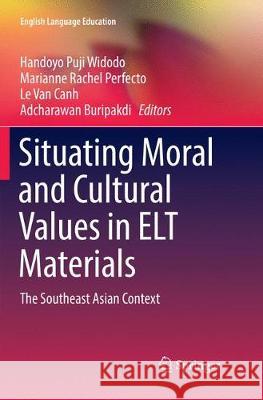Situating Moral and Cultural Values in ELT Materials: The Southeast Asian Context » książka
topmenu
Situating Moral and Cultural Values in ELT Materials: The Southeast Asian Context
ISBN-13: 9783319876115 / Angielski / Miękka / 2018 / 188 str.
Kategorie:
Kategorie BISAC:
Wydawca:
Springer
Seria wydawnicza:
Język:
Angielski
ISBN-13:
9783319876115
Rok wydania:
2018
Wydanie:
Softcover Repri
Ilość stron:
188
Waga:
0.32 kg
Wymiary:
23.37 x 21.59 x 1.02
Oprawa:
Miękka
Wolumenów:
01











